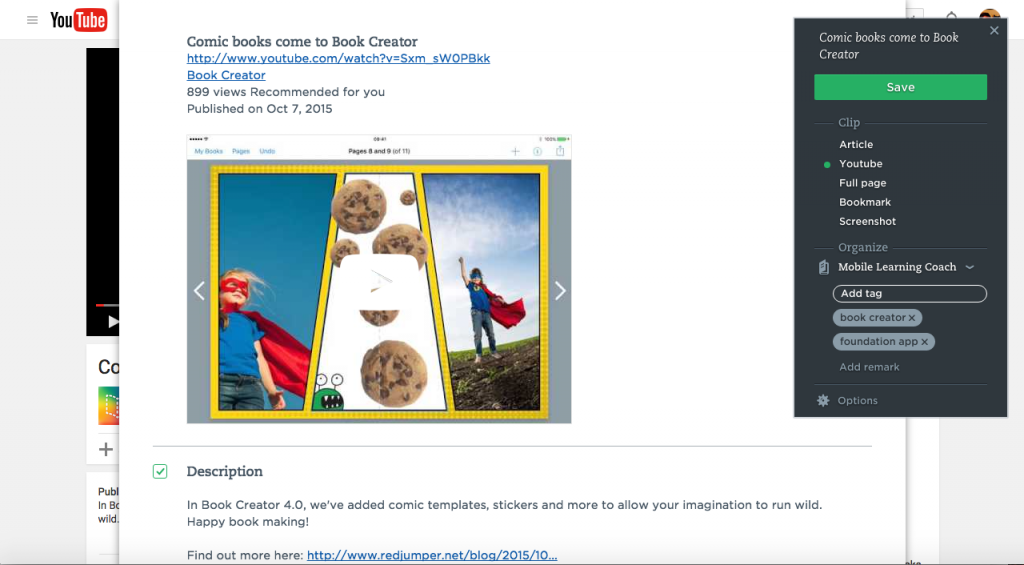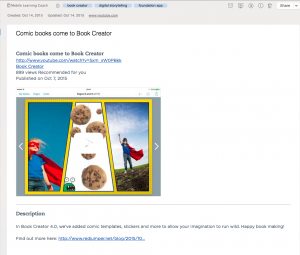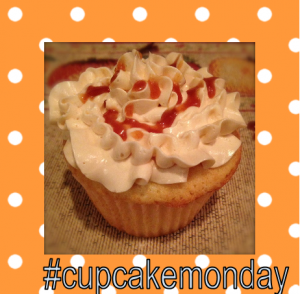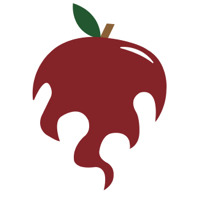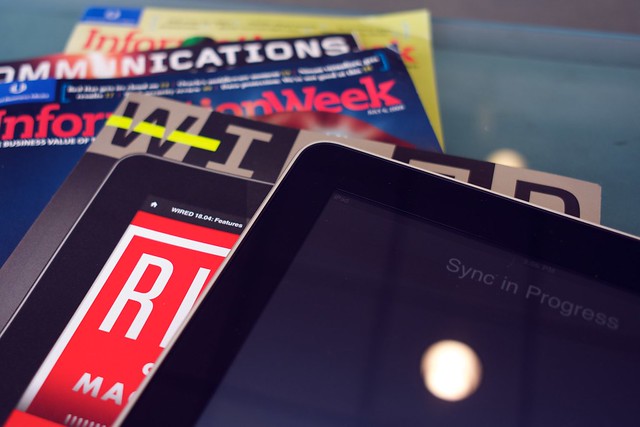
Flickr: iPad with magazines, Chengyin Liu
I laugh when people talk about how I have summers off. While it’s true that educators have a block of time when they aren’t required to show up at school, most teachers have summers filled with work/profession-related activities that can’t be done as productively when they are in front of students.
For me, about three weeks of every summer is dedicated to participating in and learning about union issues. Shortly after school ended, I spent nine days in Denver, Colorado representing my local and state associations at the Representative Assembly. I’ll spend another six days in August at our state’s Summer Conference and Board of Directors meeting. In between, I am participating in a learning session on transformation and making sure that new teachers in my district know where to go when they have questions or concerns. I’ll be attending EdCamps, reading conferences and meeting with members of my expanding PLN. I believe that all of these activities, which elevate the teaching profession, make me a better teacher in the classroom. It reenergizes and recommits me to leading the profession I believe is instrumental in building a better world.
Much of the remainder of the summer is dedicated to self-directed professional learning related to my classroom practice, preparation for the new school year, and housekeeping. My house has borne the brunt of a whirlwind school year with me juggling multiple roles and sharing a house with my teenaged son. Peek under furniture and you will most likely find a stray gym sock, along with a selection of cat toys. There are stacks of paper to be filed and odd collections of materials that I was sure, for some reason, should be kept so that they could be used in my classroom. I’m convinced that being an elementary teacher turns perfectly normal folks into die-hard hoarders. It’s time to sort, toss, clean, and organize.
Just as my personal life needs clearing out and organizing, my professional spaces require housekeeping. Some of the cleaning is physical, such as accumulated clutter in my classroom, and some of it is digital. Despite pledging that I would always, always, always, save documents to appropriate folders, somehow that didn’t always happen. Time to go through and sort, move, and sometimes delete, files. Sorting through files I have created reminds me of the resources I have available and helps me plan for how I will (or will not) use them in the upcoming year. This is also a great time to look through my Evernote notes from mid-year professional development sessions and to find half-finished (sometimes half-baked) ideas and projects that I simply didn’t have time to complete over the year. This is also where I have stored all those “things to explore and/or learn about” that simply could not be given time during the school year.
Today’s project was to organize my incoming information. If all goes well, I will be transferring to a new position for the new school year and will need to shift the focus of my professional learning. I receive professional articles and updates in a variety of ways: email, RSS feeds, etc. I tell myself I will routinely check favorite blogs and then forget or life becomes too busy to check all those sites. I also have RSS feeds from blogs that I really don’t find useful anymore and aggregators that I no longer check (or even remember that I set up). The other day, I used unroll.me to unsubscribe from a number of email lists that clog my inbox and make it harder to get to what’s important. Thanks to Anne Jolly’s article on Middleweb posted yesterday, I reviewed my Feedly subscriptions and installed Reeder 2 to make it easier to aggregate the feeds I want to check daily and started adding feeds that matched my needs for the upcoming year. I ditched a number of feeds that have ceased to be useful.
Through narrowing the focus of my feeds but broadening the sources from which I pull information, I hope to create an avenue of self-directed study over the remainder of the summer and return to school a stronger teacher.


